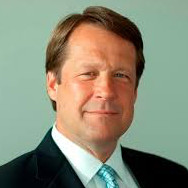Why PIPEs Aren’t Dead, But Very Different Now
In this episode of The SPAC Podcast, James breaks down the evolving role of Private Investments in Public Equity (PIPEs) and why they remain an essential but more challenging, tool for SPAC deals today.
James explains how PIPEs looked deceptively easy during the 2020 boom, when leaked deals pushed stocks to $20 and investors happily committed to $10 PIPEs. But today, PIPEs take time, trust, and careful structuring to close successfully.
He highlights two major issues that derailed many deals in recent years:
1) Overly structured terms, like downward ratchets, that scared off long-term equity investors.
2) Transactions that left companies underfunded, forcing them to raise more cash within months of going public.
For PIPEs to work now, James argues, deals must be priced right and provide enough capital runway to get companies to cash-flow positive without desperation financings.
Connect with the Guest:
James – SPAC & Capital Markets Expert
LinkedIn: https://www.linkedin.com/in/james-graf-745191/
View all of their episodes here:
https://www.thespacpodcast.com/guests/james
Connect with the Hosts & The SPAC Podcast:
Michael Blankenship LinkedIn:
https://www.linkedin.com/in/mikeblankenship/
Joshua Wilson LinkedIn:
https://www.linkedin.com/in/joshuabrucewilson/
YouTube Channel:
https://www.youtube.com/@Thespacpodcast
Contact The SPAC Podcast:
https://www.thespacpodcast.com/contact/
#SPACs #CapitalMarkets #SPACPodcast #PIPE #DeSPAC #EquityMarkets #SPACFunding
Disclaimers:
The views, opinions, and statements expressed by the guest are solely their own and do not necessarily reflect the views of The SPAC Podcast, its hosts, or affiliated organizations. This content is for informational purposes only and should not be construed as investment, legal, tax, or accounting advice.
Michael J. Blankenship is a licensed attorney and is a partner at Winston & Strawn LLP. Joshua Wilson is a licensed Florida real estate broker and holds FINRA Series 79 and Series 63 licensure. The content of this podcast is intended for informational and educational purposes only and should not be interpreted as legal, financial, or compliance advice. The views and opinions expressed by the hosts and guests are their own and do not necessarily reflect the official policies or positions of any regulatory agency, law firm, employer, or organization.
Listeners are encouraged to consult their own legal counsel, compliance professionals, or financial advisors to ensure adherence to applicable laws and regulations, including those enforced by the SEC, FINRA, and other regulatory bodies. This podcast does not constitute a solicitation, offer, or recommendation of any financial products, securities transactions, or legal services.
Let’s Connect on LinkedIn:
👉 Michael J. Blankenship - https://www.linkedin.com/in/mikeblankenship/
👉 ...
Mike Blankenship:
Jim, are PIPEs dead, or are they just different now?
James:
It used to take a long time to get a PIPE done. Years ago, I worked on one that took six months. It was hard work, but it got done.
During 2020, though, PIPEs looked easy. Deals leaked, shares traded at $20, and everyone wanted to commit to a $10 PIPE. But that environment was temporary.
Now we’re back to PIPEs taking time and effort. The key question is: can you convince investors to commit at $10 and give them confidence the deal won’t collapse to $2?
There are two big lessons from the past few years:
- First, we need to avoid structured terms like downward ratchets, which killed long-term equity demand.
- Second, deals must close with enough cash to reach cash-flow positive. If investors know you’ll be desperate to raise again in 6–12 months, they’ll just wait.
So today, getting a PIPE done requires right pricing and a clear capital runway, that’s what convinces fundamental investors to step in.

CEO
James Graf is CEO of Graf Global Corp., his eighth SPAC as CEO, CFO and/or active director since 2011. He also serves as Interim CFO of NKGen Biotech, his last SPAC target. Previous closed transactions include Global Eagle, Videocon d2h, Williams Scotsman, Target Hospitality, Velodyne Lidar, Crown LNG and NKGen.Prior to SPAC life, Jim was an investment banker for two decades, including roles as President of Deutsche Bank’s investment bank in Hong Kong and managing director at Merrill Lynch. He later founded enterprise software company Praedea Solutions and served as a financial consultant to MGM Studios.












